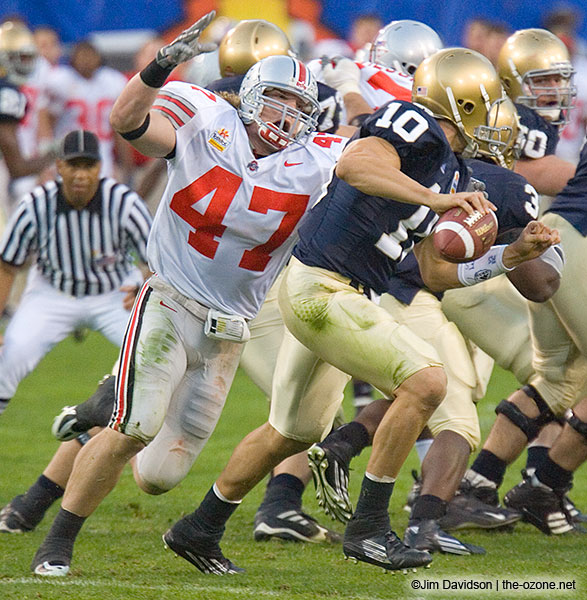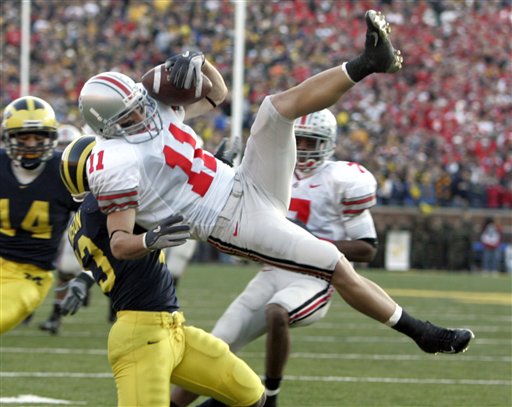 After having a couple of weeks to chew on the new time-management rules for the 2006 college football season, I’ve come to immensely dislike them.
After having a couple of weeks to chew on the new time-management rules for the 2006 college football season, I’ve come to immensely dislike them.
Here’s why: rule changes are supposed to be “universal;” that is, affect all teams equally. It seems clear to me that the speeding up of the college game (by 12-20 plays, according to some estimates) will unfairly penalize teams that use 4th-quarter conditioning and strength as part of their strategy.
It’s no secret, for instance, that Tresselball is defined by a strong 4th-quarter game plan. How many times as a Bucks fan have you reassured yourself, “…yeah, we’re down, but there’s a quarter and a half left. No problem for ol’ Sweater Vest.”
Once you realize that it is a strategy of coaches (particularly in the Big 10 and Big 12) to rely on the superior conditioning of their teams to eke out victories late in the game, then you can understand how the new rules will negatively affect those strategies.

Hurricane fans certainly know the importance of the 4th quarter
Of course, it’s impossible to prove a negative. We’ll never be able to say, “Without those new rules, our team might have had one more series to score. What if?” However, we can look back at history and extrapolate. Last year, for instance, Troy Smith led the Buckeyes on a last minute, 12-play, 88-yard drive to win the game against UM. If the “12-20 fewer plays” estimation is correct, then UM would have won that game. And of course, that also means UM would have lost to Penn State, USC would have come up short against Notre Dame, etc., etc. The entire national title picture would have been completely rewritten.
All so that a few extra Chevy Truck ads can be subliminally shoehorned into our psyche?
Coaches will have to adapt game plans; that’s part of the game. However, this new system will create more frustrations and “what if?” arguments among fans, and minimize the likelihood of most exciting part of the college game – the fourth quarter comeback.
What do you think?
 The first installment of the
The first installment of the 


 Blue Jackets negotiations with Nikolai Zherdev have reportedly
Blue Jackets negotiations with Nikolai Zherdev have reportedly 